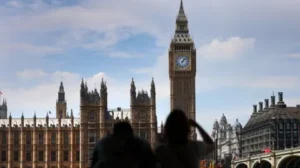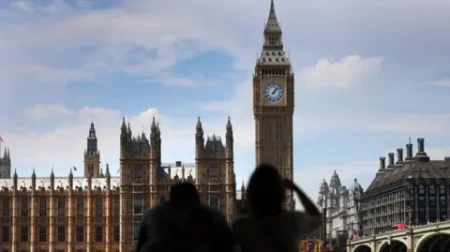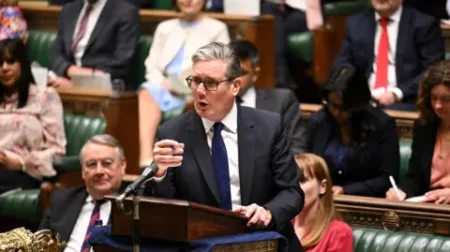In a recent parliamentary session, the government secured a significant vote in favor of its benefits legislation by a margin of 75 votes. This followed a series of major last-minute concessions made to dissident Labour Party members, highlighting the ongoing tensions within the realm of welfare reform. Key figures such as Work and Pensions Secretary Liz Kendall were directly involved in the negotiation processes, amidst an atmosphere of urgency as potential defeat loomed.
Initially, the government’s proposal exhibited signs of concession, having previously altered its stance by reversing cuts to Universal Credit, a vital support mechanism for low-income individuals, and protecting current recipients of Personal Independence Payments (PIP) from new, stricter eligibility criteria. However, lingering apprehensions among Labour MPs regarding the timing of the new PIP criteria were evident. They feared that these changes would come into effect before an ongoing review could provide insights or recommendations for improvements.
In a proactive response to stave off a potential parliamentary defeat, the government performed yet another U-turn. This move involved a commitment not to implement the revised PIP rules until adequate time had been allocated to assess the findings of the review. Such a decision may have been seen as necessary, yet it demonstrated the precarious nature of the government’s standing and the delicate balance it must maintain when engaging with opposition parties.
Despite this tactical withdrawal, the ramifications of the eleventh-hour adjustments meant that the pivotal benefits legislation emerged lacking some of its most significant components. Not only did this dilute the power of the bill, but it also created additional challenges for the Treasury’s budgetary plans, as anticipated savings, reportedly around £5 billion, could now be postponed or lost entirely. Observing the developments, Liz Kendall remarked, “I wish we had got to this point in a different way,” acknowledging the contentious negotiations while still asserting that the bill facilitated crucial reforms aimed at aiding individuals in their return to work.
Following a tense voting session, the outcome saw MPs supporting the bill with a tally of 335 to 260. However, this narrow victory led to a reduction in the government’s working majority from 165 down to 75, a stark reminder of the political vulnerabilities surrounding the administration. The House of Commons is scheduled to further scrutinize the bill, with a return date set for July 9, indicating ongoing debates and concerns among legislators regarding the proposed welfare changes.
Further complicating matters, the modifications suggested in the lead-up to the vote were not universally welcomed. Some MPs openly voiced their dissatisfaction with the frantic pace at which the proceedings unfolded. During a contentious debate, disability minister Sir Stephen Timms provided testimony that additional compromises were forthcoming, which included the removal of proposed PIP eligibility alterations. His statement, “We will move straight on to the wider review and only make changes to PIP eligibility activity and descriptors following that review,” underscores the government’s attempt to seek consensus within a fractious environment.
Labour representatives expressed discontent with the last-minute adjustments, framing the situation as an illustration of disarray and confusion. MP Paula Barker described the process as a “shambolic spectacle,” while fellow Labour member Mary Kelly Foy humorously recounted her perplexing experience of stepping out for a brief moment only to return to a vastly altered context, reflecting the chaotic nature of the proceedings that day.
This recent unfolding reflects a broader struggle within the realm of welfare policy, exposing fissures in party negotiation dynamics and demonstrating how crucial elements of social support are subject to rapid shifts based on political exigencies. The outcome remains to be seen as future discussions on the welfare reform bill approach, but the implications of these recent controversies will undoubtedly shape debates and policy directions within Parliament for the foreseeable future.











